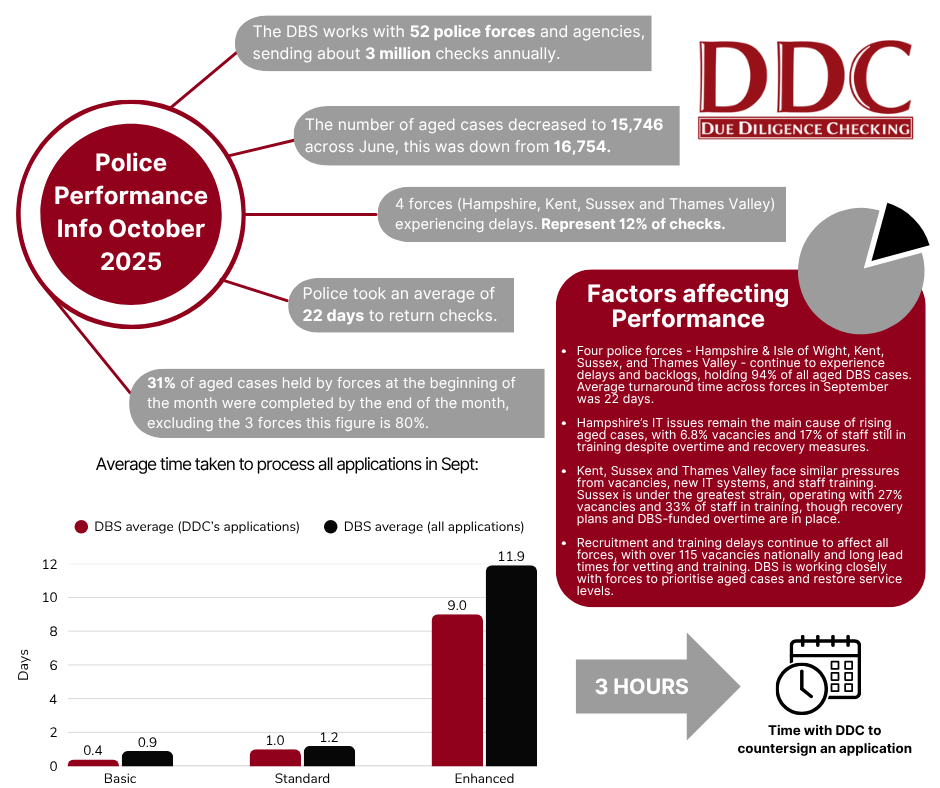Each year, the DBS sends more than three million checks to police forces and law enforcement agencies. However, delays in processing Enhanced DBS checks continue to affect thousands of job applicants across the UK.
The majority of these delays stem from just three or four of the 52 police forces, Hampshire, Kent, Sussex and recently Thames Valley. While most other forces are meeting performance targets, these account for the bulk of the backlog. The DBS works closely with all police forces to ensure checks are completed as quickly as possible. Applications taking longer than 60 days are flagged to the DBS, and escalation processes are put in place.
What is causing the delays with the DBS checks?
- Staff Shortages: Job vacancies within local police forces have increased, with staff turnover remaining a persistent challenge. Recruitment, vetting, and training can take up to a year, meaning the benefits of new staff are not felt immediately.
- Mounting Case Volumes: A high number of incoming requests continues to add pressure to already heavy workloads.
- Backlogged Police Forces: Hampshire, Kent, and Sussex Police are responsible for over 74% of all cases older than 60 days and are struggling to clear existing backlogs.
- Application Queries: Missing, unclear, or mismatched information on applications can create ‘conflicts’ that require further investigation by the DBS, delaying processing times.
Enhanced DBS checks are reviewed not only against national records but also by local police forces covering an applicant’s address history. In some cases, additional forces are contacted if the Police National Computer indicates they may hold relevant information.
If a potential match is found, the local police force must verify whether it relates to the applicant and if disclosure is necessary. This manual review can extend processing times, especially when multiple forces are involved or further clarification is needed between them.




